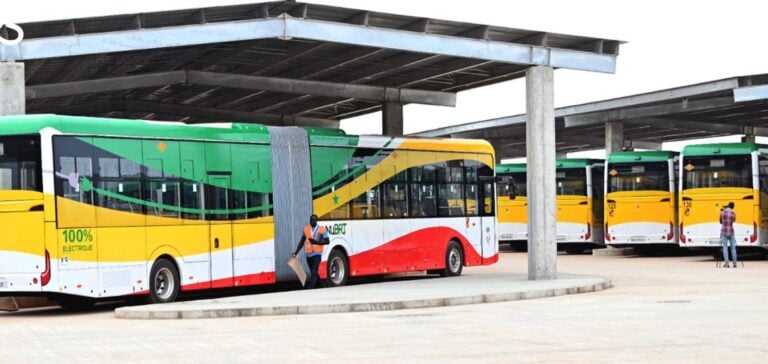On May 15, 2024, Dakar launched an ambitious Bus Rapid Transit (BRT) project, designed to revolutionize transport in a notoriously congested metropolis. According to Stéphane Volant, President of Dakar Mobilité, the system is the first of its kind in Africa. The buses, which run on dedicated lanes, are fully electric. They offer a fast, comfortable and safe alternative to existing means of transport. It also tackles major urban challenges such as traffic congestion and pollution.
Economic and environmental impact of BRT
The Dakar BRT, at a cost of 420 billion CFA francs (640 million euros), is supported by the World Bank, the European Investment Bank and the UN Green Climate Fund. In terms of environmental impact, the promoters estimate a saving of 60,000 tonnes of CO2 per year. Management of the project has been awarded to Dakar Mobilité for a 15-year period, with a majority stake held by the French company Meridiam and Senegal’s Fonds souverain d’investissements stratégiques.
Challenges and prospects for BRT
Despite the obvious benefits, BRT has encountered challenges, including infrastructure damage during the recent political unrest. Nevertheless, the BRT operation is designed to be progressive, aiming to serve 300,000 passengers a day. In the long term, it could considerably reduce the number of cars on the roads, and hence traffic jams in the city. The initiative is in line with earlier projects such as the rapid transit train (TER). It has already improved the lives of many commuters by significantly reducing journey times between Dakar and the new town of Diamniadio. Dakar’s BRT network represents a major step forward in the city’s efforts to modernize its public transport system and meet the demands of its growing population and dynamic economy. By integrating clean, efficient mobility solutions.






















